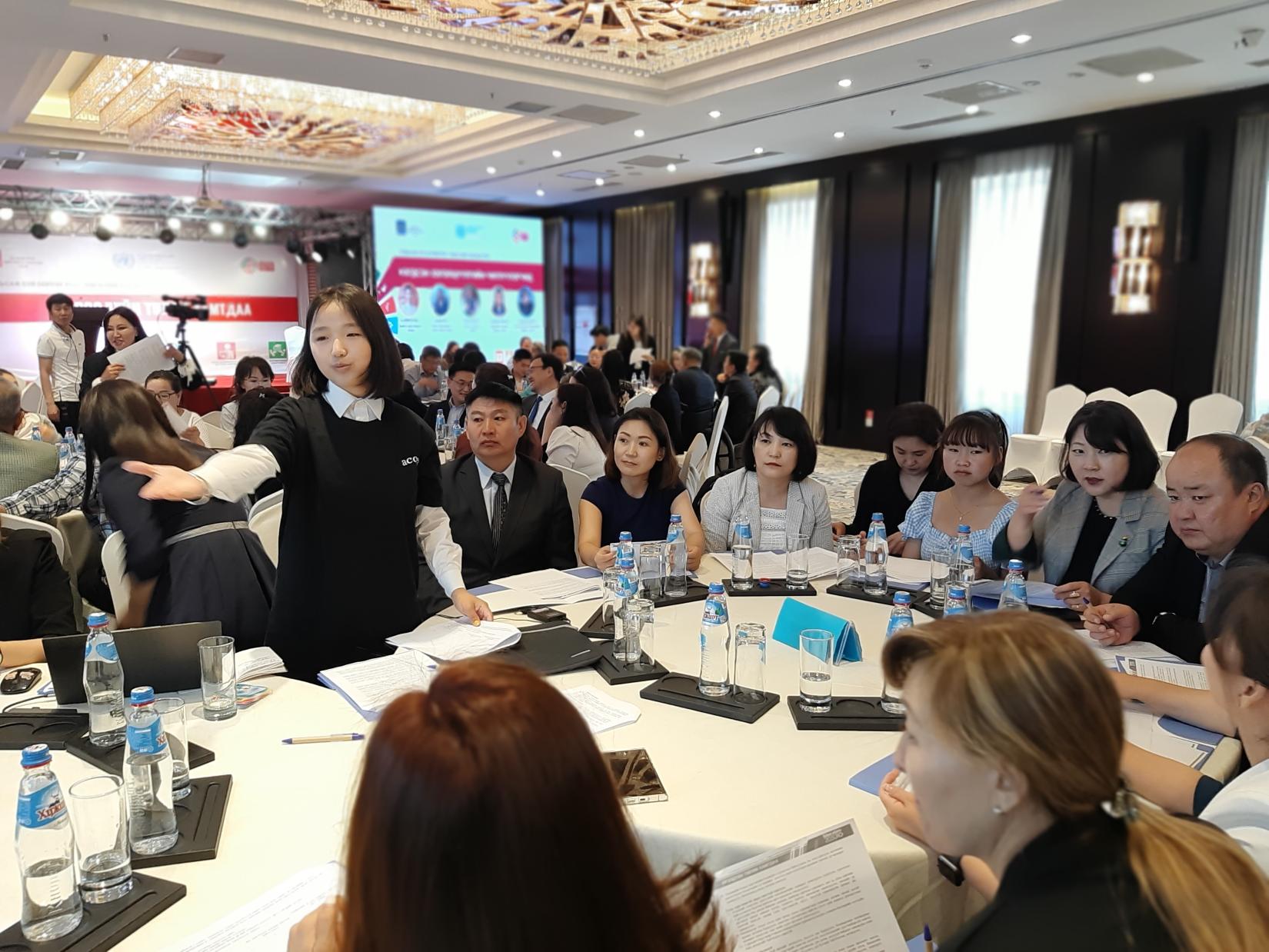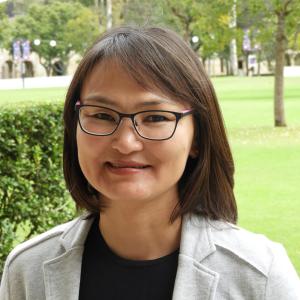Mongolia's stakeholders in education envisioned a shared vision for future of education
05 July 2022
- Ulaanbaatar -- Safe, quality, and flexible education system, incorporating lifelong learning opportunities and equal access to digital technologies was envisaged as the future of education in Mongolia at the Transforming Education national consultation held today in Ulaanbaatar.
Over 130 participants representing 44 state and non-state actors and international organizations have endorsed Mongolia’s commitments and policy recommendations to transform the country’s education establishment into a system based on needs and linked to job market demands.
Prior to the national consultation, a series of dialogues and consultations were organized under the leadership of Mongolia’s Education Minister, Enkh-Amgalan Luvsantseren who believes that “more participation means less mistakes”. He further highlighted that the Ministry, first time in its history, was able to consult with such a wide range of players to discuss the much-needed transformation in Mongolia’s education system. The consultations gave voice to youth, educators, policy-makers, private sector and civil society organizations, urban and rural dwellers, children and parents, boys and girls, and women and men from 10 to over 60 years old, representing a whole range of social groups.
The consultations were held as a part of the United Nations member states that supported Our Common Agenda, a policy blueprint aimed at accelerating progress toward SDGs, especially after the damages and backslides caused by the COVID-19 pandemic. The United Nations Secretary General’s Transforming Education initiative put forward at the Our Common Agenda facilitation discussion with heads of states in 2021, was broadly accepted as a basis for achieving all SDGs.
“Transformation of education is essential to unlocking a breakthrough towards a safer, more equal and peaceful future. In this context, countries are encouraged to hold inclusive, multi-sectoral consultations to develop a shared vision and commitments at the highest level to transform education,” said the UN Resident Coordinator in Mongolia, Tapan Mishra, addressing the participants of the national consultation. “Progress in SDG 4 on Education plays a pivotal role in advancing the multi-dimensional and integrated nature of the 2030 Agenda.”

As the COVID-19 pandemic has exacerbated the existing education gaps and significantly disrupted the education systems around the world, each of the UN member states has been organizing the Transforming Education national consultations. The commitments to transform the XXI century education systems in their respective countries are to be presented at the Transforming Education Summit (TES) to be convened during the 77th General Assembly in September.
The TES June pre-summit in Paris Mongolia showcased some notable achievements in digital learning, set in place during the COVID-19 lockdown and school closures. However, there were challenges as well. Thus, according to a UNICEF-led study in Mongolia, one-third out of 600 thousand school children are at high risk of learning loss due to the inability to access distance learning. Children with disabilities, children from vulnerable groups, and children who live in violence were reported to have experienced a digital divide due to a lack of access to technologies and/or the ability to beneficially use those for extracting information and facilitating knowledge.
“Based on our experiences and efforts of delivering an uninterrupted education during the COVID-19 pandemic, there is no question that hybrid learning is to be firmly set in our educational system,” says S. Sanjaabadam, the Academic Secretary of the Mongolian National Institute of Education Research. “Digital learning experience has pointed at our weak and strong sides. Using new technologies and innovation so much supported by the Mongolian Ministry of Education is the basis of the digital transformation in Mongolia’s education system,” added S. Sanjaabadam.
Re-training of teachers, and re-formulating the pedagogical teaching approaches and standards to ensure the quality of teaching through all levels of education starting from pre-school to academia was identified as one of the key areas of a successful transformation in the sector.
Education funding that does not mainly relate to state subsidies but is able to attract private sector support and involvement was seen as a powerful enabler for the system of education of the future.
One of the young participants at the consultation with the youth said: “We, the children are grateful for you, the adults, consulting with us on this very important topic of transforming education. It is the greatest investment you are making in education.”
The participatory exercise of consultations on how to transform education to meet the challenges of the future and create the basis for a prosperous, happy and healthy society, held across the entire country has already given productive results. The ideas raised by the stakeholders were taken aboard by the lawmakers and reflected in the draft revisions of the legislative package on education reform to be submitted to Mongolia’s Parliament this fall.



